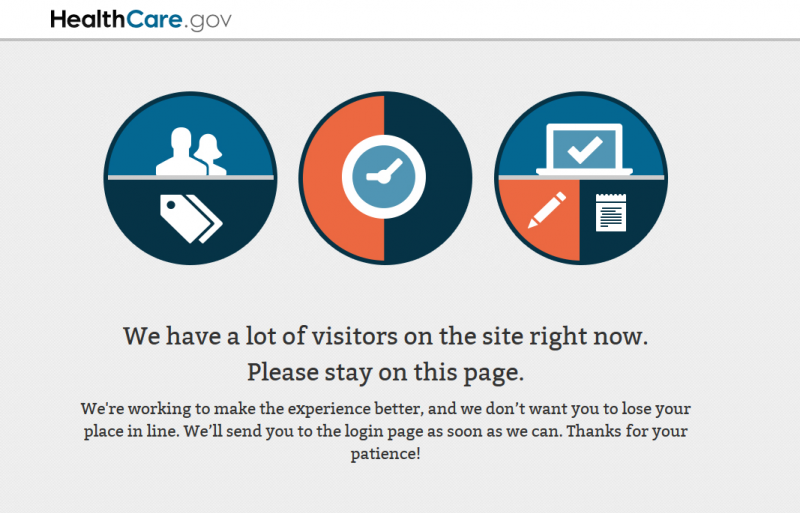 Lead Obamacare IT Contractor CGI Federal had known performance issues
Lead Obamacare IT Contractor CGI Federal had known performance issues
It is by no means a secret that the Obamacare website roll out has been plagued with problems. But while many of us know about the seemingly countless technical issues that have prevented Healthcare.gov from functioning as it should, far fewer are familiar with the company that was contracted to develop the site and make it work: CGI Federal.
For the record, CGI Federal is a wholly owned subsidiary of the CGI Group, a Canadian firm that was founded in 1976 by Serge Godin and Andre Imbeau. CGI is an acronym for “Conseillers en Gestion et Informatique,” which, translated from French, can be interpreted as “Information Systems and Management Consultants”.
In June, the Government Accountability Office (GAO) reported that, in total, 55 contractors were selected to deliver a functional federal health-care marketplace to the American public. According to the report, among the 55 organizations, CGI Federal won the most lucrative contract by far, receiving $88 million of the $394 million that had been spent on the project at the time the GAO report was written.
In considering an expenditure of this size, one might reasonably ask what about CGI or its performance record qualified it to spearhead this highly complex initiative. In fact, the organization’s reputation is mixed at best.
In Canada, eHealth Ontario contracted with CGI to develop a medical registry for persons with diabetes. After tolerating three years of missed deadlines, the Canadian government found itself forced to cancel the $46.2 million contract in 2012.
“They did not meet the requirements of their contract which was faced with many layers of delays, which caused great angst among the health care providers who are trying to do their best,” states Ontario parliament member,” Frances Gélinas.
Numerous other CGI-related debacles involve now-defunct American Management Systems (AMS), an American company purchased by CGI in 2004. When CGI purchased the company, which itself had a highly dubious track record, it retained several members of the AMS executive team, including George Schindler, now in charge of CGI’s U.S. operations.
In 2003, AMS settled a lawsuit brought by the Federal Retirement Thrift Investment Board after running $60 million over budget and still failing to upgrade the organization’s computer systems.
“You couldn’t count on them
A report issued by the Senate Committee on Governmental Affairs, found that AMS was not able to deliver a functional system and that virtually all of the code provided by the contractor turned out to be useless. According to the report, “The code failed system tests, and attempts to fix the errors caused further delays and increased costs.”
The state of Mississippi experienced similar difficulty with AMS. In 2000, it won $474 million jury verdict against after the consultant firm failed to deliver a viable tax software system.
“They did not provide us one working piece of software after almost six years,” states former Mississippi revenue commissioner Ed Buelow Jr., “There were hundreds of errors. Nothing worked.” Other notable AMS failures include:
- A computer system built by AMS for a Philadelphia school system that sent paychecks to dead people.
- Errors made in programming for the Wisconsin Department of Revenue resulted in counties being forced to repay millions of dollars in incorrectly calculated sales taxes that had been collected.
CGI has also been active in helping Hawaii, Vermont, and Colorado establish their own health exchange sites. All three have encountered major problems and delays.
Obamacare IT Contractor CGI responds
In defense if the troubled organization, CMS spokeswoman Tasha Bradley states, “Unfortunately, the experience on HealthCare.gov has been frustrating for many Americans. HealthCare.gov can and will be fixed, and we have called in additional technical help from across the country to solve some of the more complex technical issues.”
Linda Odorisio, also of CGI, adds, “We remain 100 percent committed to the success of our client, and our experts continue to work around the clock, seven days a week to improve the online consumer experience on the federally-facilitated marketplace.”
To move toward a satisfactory resolution, the Obama administration has named Quality Software Services Inc., a unit of UnitedHealth Group Inc., to assume the duties of lead contractor for the project, and to oversee the work performed by CGI.
“CGI is an important part of the team to make sure we fix the website, work through the problems and get through our punch list,” said Jeffrey Zients, an entrepreneur appointed by the president as a management consultant to the healthcare.gov repair effort. Coincidentally, Zients, a former official at the Office of Management and Budget under Obama, will become Obama’s chief economic adviser on January 1.
Engineers from Google Inc., Red Hat Inc., and Oracle Corp. have also been retained in an effort to get the website working smoothly by the end of this month.





